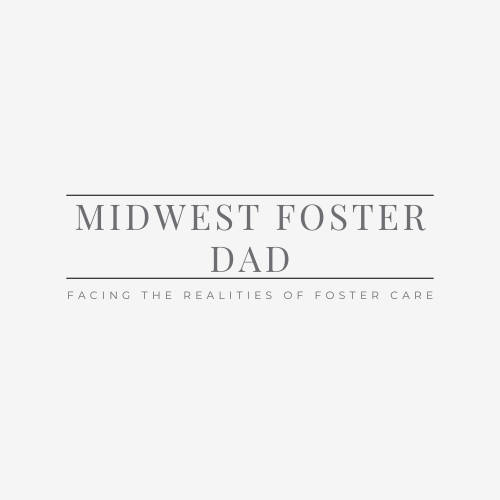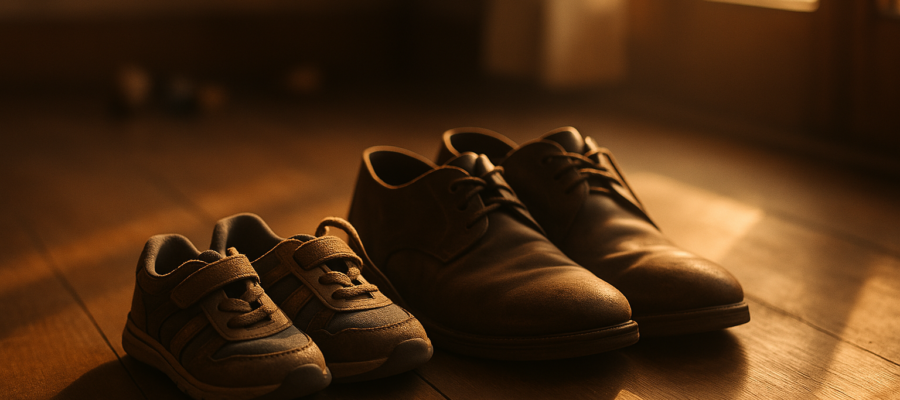10 Things I Wish I Knew Before Saying Yes to Foster Care
Foster care isn’t what you think it is—until you’re living it.
Before my wife and I took in our first placement, I thought I had a solid understanding. After all, I had been a child welfare caseworker for years. But nothing—not training, not secondhand stories, not even my professional experience—could prepare me for what foster parenting would feel like inside my own home.
Here are the 10 things I wish someone had told me before I said yes to this life-changing journey.
1. Love Isn’t Enough—But It’s Still Essential
I learned this before I was ever a foster parent—when I was a caseworker. I watched kids placed in homes where foster parents gave all the love in the world, and still, the kids struggled. They acted out. Shut down. Hoarded food. Refused affection. Not because they weren’t loved, but because love alone isn’t a cure for trauma.
When I became a foster parent, I still had that quiet hope that my love would be different. That it would be enough. It wasn’t. And that realization was heartbreaking. But it also pushed me to learn more. Trauma-informed parenting training, therapy, and patience became part of our daily rhythm. Love mattered—it was the foundation—but it had to be paired with tools.
One foster child, in particular, taught me this the hard way. He was 8, neglected most of his life, and filled with a quiet, heavy rage. He didn’t trust love. Couldn’t. And no matter how many hugs, routines, or reassurances we gave him, his trauma built a wall we couldn’t break through in four months. But still—we tried.
2. Grief and Goodbyes Are Part of the Deal
You can read about it, prepare for it, even expect it—but you won’t fully understand until you go through it. Saying goodbye to a foster child you love feels like losing a piece of your soul. It’s a grief that looks a lot like death—but without a funeral, closure, or societal support.
I wrote in-depth about this experience in “The Painful Truth About Saying Goodbye to a Foster Child”. That grief made me hesitant to fully open my heart again. For a while, I parented from a distance. But slowly, with time and connection, the walls came down.
If I could go back and tell myself one thing, it would be this: Don’t assume they’ll stay—until there’s a court order in your hand.
3. Forget Traditional Parenting Methods
Traditional discipline doesn’t work with kids from trauma. Punishment? Time-outs? Taking things away? These kids have already had everything taken from them. If anything, it triggers their trauma responses even more.
I once had two brothers placed with me, ages 2 and 4, who hoarded food and would sneak snacks at night. When I tried to restrict food access, they panicked. Through conversations with their therapist, I learned this was about survival. So instead of locking things away, we created a snack basket they could access freely at night—with healthy, pre-approved options. The shift in their behavior was almost instant.
Trauma-informed parenting is less about consequences and more about connection.
4. Not Everyone Will Understand Your Choice
You’ll hear a lot of, “Are you sure you can handle that?” or “But what if they’re… bad?”
Even well-meaning friends and family may perpetuate harmful foster care myths. One relative once asked me if I was prepared for the “bad kids.” That kind of language still stings. But it also fuels my purpose—to love and advocate for kids society often misunderstands.
Some friendships faded after I became a foster parent, mostly because my time and energy were consumed by this new reality. But that’s okay. I found deeper community in others walking this same path.
5. Your Life Becomes Public Record

The paperwork alone is staggering—med logs, appointment forms, school reports. But the emotional toll of always being watched? That’s another level.
One day, I forgot about a scheduled home visit. The caseworker arrived to laundry on the floor and dishes in the sink. She reassured me, of course, that it wasn’t a big deal—but I still felt judged.
Then there was the time a biological parent found my TikTok. Another tracked me down through LinkedIn. After that, I locked down every account and stripped identifiers from my blog. Foster parenting is personal—but it’s rarely private.
6. Accusations From Biological Parents Might Happen—Be Prepared, Not Defensive
It happens more often than you’d think. One set of bio parents accused me of fabricating their child’s medical conditions—conditions confirmed by multiple specialists. They also accused us of being “dirty” because there was dog hair on her pants after a visit.
At first, I was furious. But with time (and support), I stopped taking it personally. I understood: accusations are often projections. Desperate attempts to deflect from their own pain or failures.
What matters most is documentation. Track everything. Communicate professionally. And always CYA—cover your ass.
7. Self-Care Isn’t Optional—It’s Necessary
I’ve burned out before. Completely. I’ve parented on empty, pushed myself too far, lost my empathy, and numbed myself emotionally.
Therapy helped. So did carving out 20-minute breaks for writing, gaming, or silence. My wife and I now schedule “recharge shifts” where we trade off parenting so the other can rest.
If you think, “I’ll rest once things calm down,” I hate to break it to you: they won’t. You have to create the calm for yourself.
I shared more tools that help me function in my story “I’m a Burnt-Out Parent — These 10 AI Tools Gave Me My Sanity Back”.
8. Be Ready to Advocate—Hard
You will be your foster child’s biggest (and sometimes only) voice. I had to fight for my 2-year-old foster daughter to get a g-tube when her bio parents refused consent. I gathered documentation, requested letters from doctors, and met with the caseworker multiple times before the court approved it.
You’ll also face roadblocks. Insurance lapses. Caseworkers who don’t respond. Or, in one case, a visit that continued even when a bio parent showed up high. It’s enraging. But your persistence is everything.
Speak up—but bring proof. Be kind—but firm. Always, always lead with the child’s best interest.
9. The System Isn’t Perfect (Prepare to Be Frustrated)
You’ll see the cracks. The inefficiencies. The forgotten referrals. The weeks it takes to fix insurance so your foster kid can finally get the help they need.
I’ve disagreed with caseworkers. I’ve watched courts make decisions that didn’t feel safe. And I’ve had to remind myself, over and over, that while I can’t control the system—I can control how I show up for the child.
10. It’ll Change You—In the Best Ways
Foster care will change your marriage, your worldview, and your idea of fatherhood.
I’ve cried more since becoming a foster parent. I’ve also become more patient, more empathetic, and more sure of who I want to be in this world.
I’ve written about this shift more personally in “Trading Paychecks for Purpose: My Stay-at-Home Dad Journey”.
Before foster care, I felt sympathy for these kids. After foster care, I feel anger for them. It’s no longer pity—it’s a protective instinct, a deep knowing that they deserved better.
And if I can be the one to show them even a sliver of that better… then it’s all worth it.
Final Thoughts
Foster care isn’t for the faint of heart. It’s messy, exhausting, and unfair. It’ll stretch every part of you—and then stretch you again. But it will also change you in the best possible ways. You’ll become softer, stronger, and more human than you’ve ever been.
If you’re thinking about saying yes to fostering, do it with open eyes and an open heart. It won’t be easy.
But it will absolutely be worth it.
If this post resonated with you, consider signing up for my newsletter where I share more real-life foster care stories, practical parenting tips, and behind-the-scenes reflections.
You can also follow me on social media for daily insights and community support:



